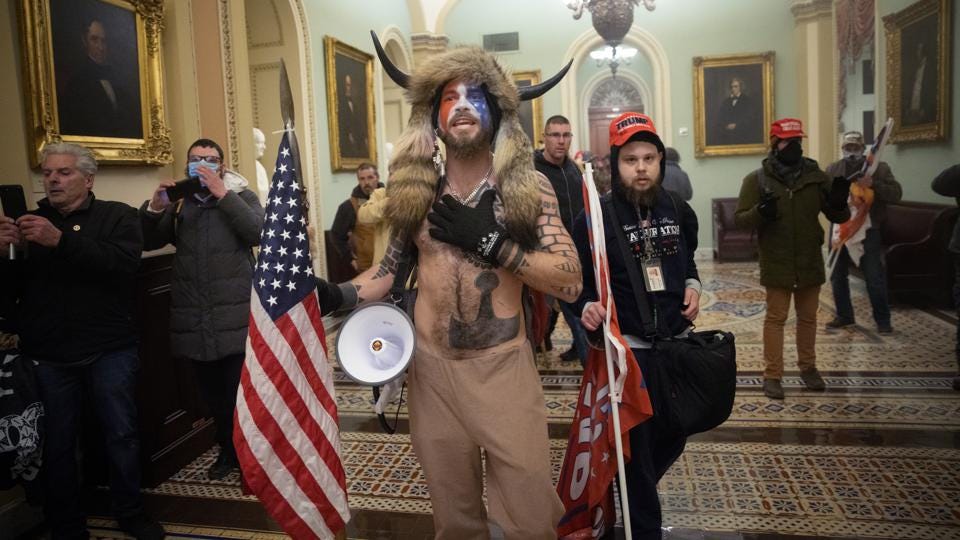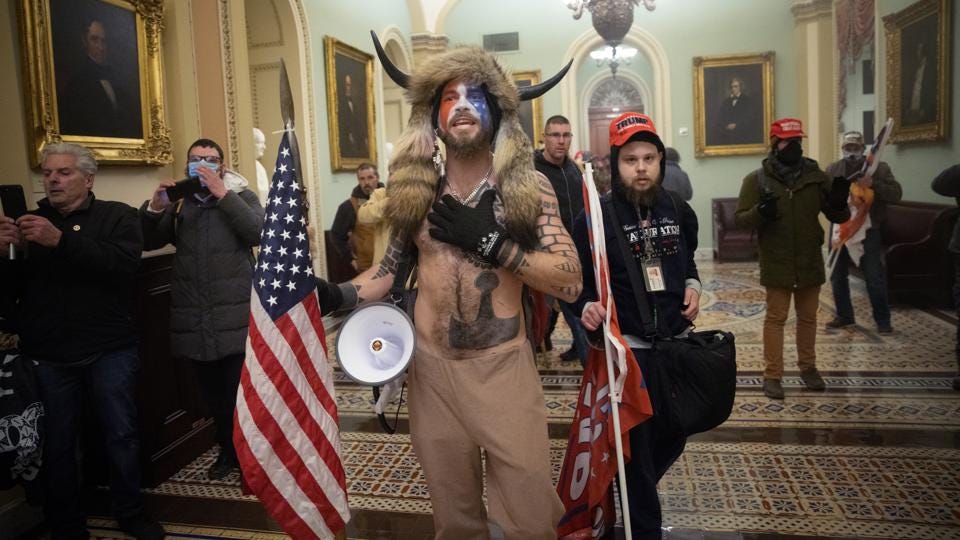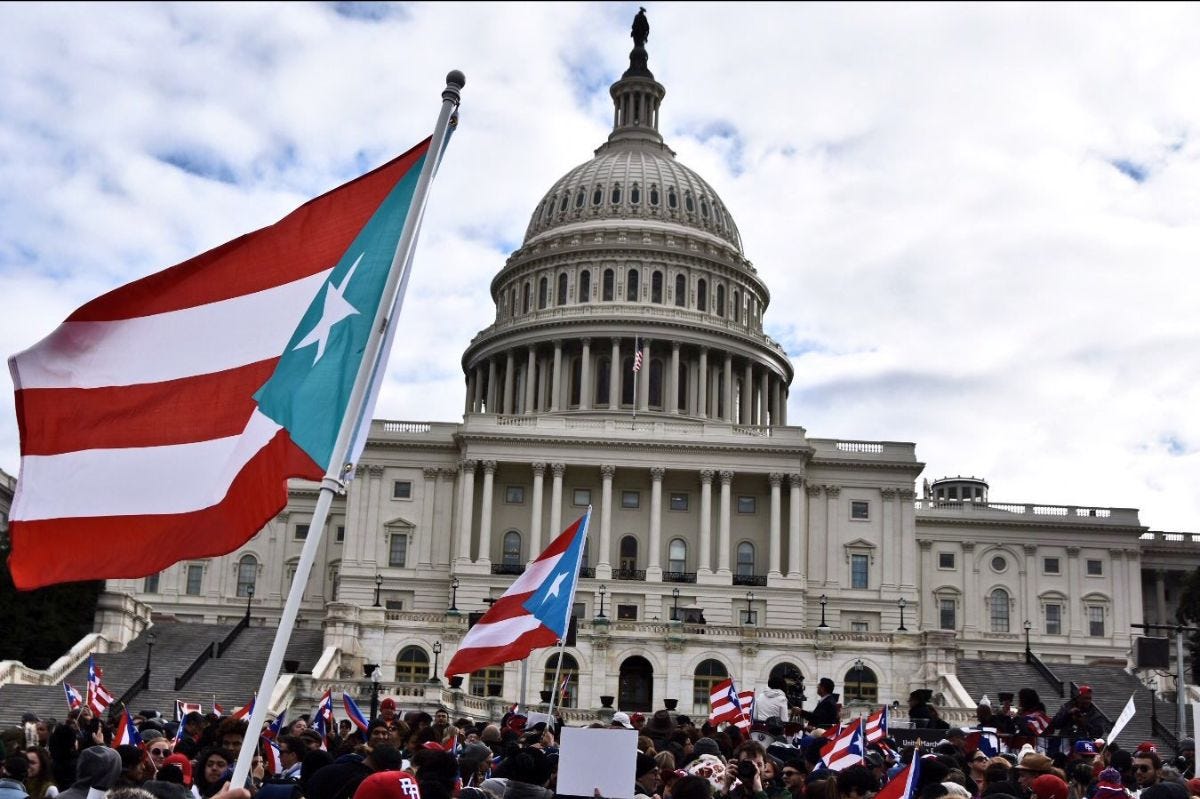Good morning! It’s Thursday, March 4, 2021. Election Day 2022 is 614 days away. Election Day 2024 is 1,342 days away.
Do you enjoy receiving Wake Up To Politics in your inbox every morning? Then consider sending this newsletter to a friend or relative who might appreciate it as well! Tell them to subscribe at wakeuptopolitics.com.
Agencies warn of Capitol secuity threat
Less than two months after a deadly riot confronted lawmakers as they sought to certify the 2020 election, the U.S. Capitol Police is warning of another possible assault against Congress today.
“We have obtained intelligence that shows a possible plot to breach the Capitol by an identified militia group on Thursday, March 4,” the police force said in a statement. “We have already made significant security upgrades to include establishing a physical structure and increasing manpower to ensure the protection of Congress, the public, and our police officers.”
The date of the renewed security threats is no coincidence. March 4 was the original presidential inauguration date used in the United States until the ratification of the 20th Amendment in 1933. That has led some followers of the QAnon conspiracy theory to falsely suggest that former President Donald Trump will be sworn in for a second term today, which is why law enforcement officials are increasing precautions for the day.
According to the BBC, the March 4 theory is an adaptation of claims promoted by the “sovereign citizen” movement, which purports that the U.S. has not had a legitimate government since the District of Columbia Organic Act was passed during the presidency of Ulysses S. Grant in 1871. Some far-right theorists have therefore claimed that Trump will be sworn in as the 19th president today.
However, according to NBC News, many QAnon leaders have rejected the theory and “advised their followers to avoid any events Thursday, saying they are ‘false flag’ operations organized to trap QAnon supporters.” NBC also noted that “no specific protests or events are being planned,” in contrast to January 6, when a “Stop the Steal” rally headlined by Trump metastasized into the Capitol riot.
Still, law enforcement agencies are taking no chances in light of the January 6 attack. A joint intelligence bulletin, which was issued by the FBI and Department of Homeland Security and obtained by Politico, said that a group of “militia violent extremists” had been “emboldened” by the January assault and recently “discussed plans to take control of the U.S. Capitol and remove Democratic lawmakers on or about March 4 and discussed aspiration plans to persuade thousands to travel to Washington, D.C. to participate.”
The bulletin warned state and local law enforcement agencies to “remain vigilant in light of the persistent threat” posed by domestic violent extremists.
In order to allow lawmakers to leave town amid the security threats, the House held its last votes for the week on Wednesday and canceled a session planned for today. The Senate will still convene, although the small group of Senate staffers who still work out of the Capitol complex have been advised to work from home for the day, according to NBC4.
Related: Investigations continue into January 6 attack...
“Officials put ‘unusual’ limits on D.C. National Guard before riot, commander says” (New York Times)
“U.S. alleges Proud Boys planned to break into Capitol on Jan. 6 from many different points” (Washington Post)
“Investigators focus on whether chemical irritant played role in Capitol Police officer's death” (ABC News)
The Rundown
The House approved two key Democratic legislative priorities on Wednesday:
H.R. 1, the For the People Act, passed in a 220-210 vote; the sweeping measure would require all states to offer mail-in voting and early voting, institute nationwide automatic voter registration, curtail voter ID laws, limit partisan gerrymandering, and overhaul campaign finance laws.
H.R. 1280, the George Floyd Justice in Policing Act, passed in a 220-212 vote; the police reform bill would make it easier to sue police officers by easing “qualified immunity,” ban police chokeholds, prohibit racial and religious profile, and establish a national database to track police misconduct.
Both measures are expected to face an uphill climb in the Senate, where Democrats must round up 10 Republican votes for most bills in order to break a filibuster.
In his first public remarks since being accused of sexual harassment, Gov. Andrew Cuomo (D-NY) apologized for his actions but refused to resign. “I now understand that I acted in a way that made people feel uncomfortable,” Cuomo said. “It was unintentional and I truly and deeply apologize for it. I feel awful about it and frankly, I’m embarrassed by it.” However, the governor rejected bipartisan calls for his resignation and urged New Yorkers to “wait for the facts” to emerge from an investigation into his conduct being led by state Attorney General Letita James.
President Joe Biden struck a deal with moderate Senate Democrats to change the eligibility limits for the $1,400 checks in the forthcoming stimulus package. Under the terms of their agreement, individuals who earn more than $80,000 a year and couples who earn more than $160,000 will not qualify for the payments; the original bill passed by the House last month set the eligibility limit at $100,000 a year for individuals and $200,000 a year for couples. According to the Washington Post, the change will result in about 17 million fewer Americans receiving direct payments; around 280 million Americans will still receive them.
Legal Roundup
By Anna Salvatore
The Supreme Court will likely uphold Arizona’s restrictive voter laws. During two hours of oral arguments on Tuesday, the six conservative justices indicated that Arizona’s laws against ballot-harvesting and out-of-precinct-voting don’t violate the Voting Rights Act. The liberal justices were more skeptical; Justice Elena Kagan told Arizona’s lawyer that “there are some things that are really quite obvious burdens” for minority voters.
Next term, the Supreme Court will decide whether residents of Puerto Rico can get federal aid for disabilities. Congress established Supplemental Security Income (SSI) in 1972 to support poor, blind, and disabled Americans living in the 50 states. Jose Vaello-Madero, a U.S. citizen living in New York, received SSI benefits for years because of his severe health problems. When he and his wife moved to Puerto Rico in 2013, they lost access to their benefits because Puerto Rico was not included in the law.
Vaello-Madero argues that Congress violated the Constitution’s Equal Protection Clause by granting aid to some Americans and not others. The First Circuit ruled in Vaello-Madero’s favor last September; this past Monday, the Supreme Court agreed to hear the Justice Department’s appeal. Judge Juan Torruella wrote that although giving aid to Puerto Ricans may be expensive, “the cost of including Puerto Rico’s elderly, disabled, and blind in SSI cannot by itself justify their exclusion.”
In an unsigned order last Friday, the Supreme Court ruled that five California churches can hold indoor services during the pandemic. California limits indoor gatherings related to the arts, culture, and religion, but Santa Clara County — a wealthy, populous enclave home to Silicon Valley — went so far as to prohibit all “political events, weddings, funerals, worship services, [and] movie showings.” On Friday, the Supreme Court prevented Santa Clara County from blocking worship services, holding that just as salons and shopping malls are allowed to open at 20% capacity, churches should be allowed to as well. The six conservative justices ruled for the churches and the liberal wing sided with the county, a repeat of other similar decisions on religious services during the pandemic.
One of the most powerful circuit courts in the country will hear a major gun rights case. Last August, a three-judge panel on the Ninth Circuit struck down California’s ban on high-capacity gun magazines. Judge Kenneth Lee wrote that even though gun control laws are passed after “heart-wrenching and highly publicized shootings,” they still “must pass constitutional muster”— and in this instance, he ruled, the ban violated Californians’ core Second Amendment right to armed self-defense by outlawing a large amount of magazines.
Now Judge Lee’s ruling may be overturned. In a statement last week, the Ninth Circuit announced that all active members of the court will review (and re-vote on) the panel decision. Because liberal-leaning judges outweigh conservative-leaning ones on the Ninth Circuit, it’s likely that the court will overturn the panel’s decision and reinstate the high-capacity magazine ban.
Daybook
All times Eastern.
President Joe Biden and Vice President Kamala Harris will receive the President’s Daily Brief at 10:30 a.m. Then, they will meet with Secretary of Transportation Pete Buttigieg and a bipartisan group of House members at 2 p.m. to discuss infrastructure policy. At 5 p.m., Biden will participate in a virtual call with members of the NASA JPL Perseverance team to congratulate them on the rover’s successful Mars landing last month.
White House Press Secretary Jen Psaki will hold a press briefing at 12:45 p.m. with Secretary of Veterans Affairs Denis McDonough. The Senate will convene at 12 p.m. and begin consideration of H.R. 1319, the $1.9 trillion stimulus package, which is formally titled the American Rescue Plan Act. The first step in that process is a vote on the motion to proceed, which is expected to take place soon after noon. Before the Senate can continue further, Sen. Ron Johnson (R-WI) has said he will then force a full reading of the 630-page legislation.
The reading is expected to tack 10 additional hours onto the 20 hours of debate that the Senate already must hold on the package. After those combined 30 hours have passed, the Senate will engage in a multi-hour “vote-a-rama” on dozens of proposed amendments to the bill. This process — and the final Senate vote on the bill — will likely stretch into the weekend; the legislation must then go back to the House, which will have to approve any changes made in the upper chamber.The Senate Energy and Natural Resources Committee will meet at 10 a.m. to vote on the nomination of Rep. Deb Haaland (D-NM) to be Secretary of the Interior.
The Senate Homeland Security and Governmental Affairs Committee will hold a confirmation hearing at 10 a.m. on the nomination of Shalanda Young to be Deputy Director of the Office of Management and Budget. Young is seen as a top contender to ultimately be nominated as OMB Director after Neera Tanden withdrew her nomination for the post.
The House will not be in session today due to security threats.
The Supreme Court may release opinions at 10 a.m.
Thanks for waking up to politics! If you enjoy reading this newsletter, I’d be so grateful if you’d consider donating to help support me and my work. If you want to show off your support for Wake Up To Politics, you can also buy some merchandise.
Also: don’t forget to tell your friends and family to sign up for the newsletter at wakeuptopolitics.com. And if you have any questions or comments, feel free to email me at any time.








